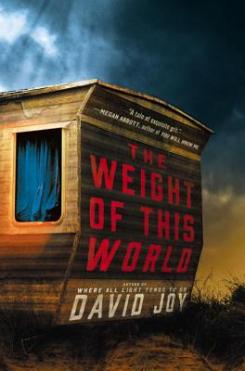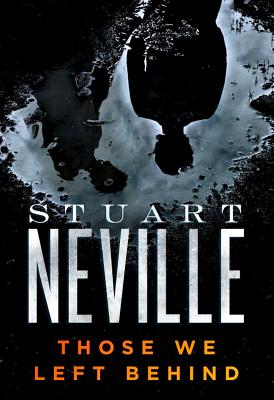
– Post by Molly
Xiao Bai has been known for his diverse writing projects in his native China for some time – his work ranges from essays, to novellas, to literary fiction. His literary spy novel, French Concession, is his first to be translated into English. According to ShanghaiDaily.com, the novel “sold…moderately well in China, but it has…elements that appeal to Western readers,” and while, after finishing the novel, I can’t speak for Chinese readers’ lack of enthusiasm, I can certainly agree with the Shanghai Daily that French Concession seems tailor-made for Western readers of espionage fiction. French Concession is such an impeccable thriller, I’ve chosen it as our July MysteryPeople Pick of the Month.
The novel takes place in 1931, predominantly in the French Concession, a French-controlled section of Shanghai. Xiao Bai has created a dizzyingly epic spy thriller, with a vast cast incorporating revolutionaries, spies, gunrunners, informants, refugees, colonial police, assassins, crime lords, prostitutes, cameramen, Russian, French, Chinese, Japanese, and every combination of the above. Xiao Bai juggles his complex plot and array of characters deftly, and his writing has a cinematic touch. French Concession is reminiscent of Lust, Caution in its mind-bending portrayal of East Asian espionage and revolution. Although Bai’s setting is complex, and his characters multifaceted, Bai includes maps, historical notes, and a tight, explosive conclusion to wrap one of the best international espionage thrillers I have ever read.
The novel begins with the recruitment of a young, French-Chinese photographer by the French Concession police, who want him to spy on his arms-dealer White Russian girlfriend. Meanwhile, a revolutionary cell led by a ruthless Soviet-trained Chinese communist plans an assassination attempt. When the photographer begins a new romance with a beautiful member of the underground cell, he continues spying for the French Concession while also spying on the police for the revolutionary cell. The photographer’s divided loyalties, conflicting loves and multiple professions serve as metaphor for the impossible choices facing China immediately before the Japanese invasion. His playboy nature, amoral collaboration with any and all, and semi-redemption through romance all harken back to the greatest of revisionist World War II movies, Lacombe, Lucien.
“Each major character shifts loyalty at least once, and their romantic entanglements are no more set then their political allegiances. Xiao Bai’s story has no heroes – only those flexible enough to survive, or dogmatic enough to seek death.”
In order to understand why Shanghai in 1931 is such a brilliant choice of setting for an espionage thriller, some historical context is necessary. Shanghai is one of the largest cities in the world, a powerhouse of trade and politics for centuries. During the 19th century creation of “open” European-dominated trading centers in Chinese port cities, Shanghai became a hot-bed of revolution and a bewildering jurisdictional nightmare. After the end of the first Opium War, the British Empire established an International Settlement, composed of French, British and American zones, taking up large swathes of the city.
After the fall of the Qing Dynasty in 1912 and the end of the Warlord Era of the teens and twenties, Shanghai came under the nominal control of Chiang Kai-Shek’s Nationalists, but with a strong Marxist underground movement determined to challenge nationalists and imperialists alike for control of the city. To translate this into noir-speak, Shanghai, in 1931, had four official police departments, four official secret services, and many other spies representing the interests of countless nations and individual parties. In contrast, occupied Berlin has served as a setting for numerous spy novels, despite having only four zones of occupation and far less jurisdictional overlap.
The complex scenario of a single city controlled by several political authorities allows each character in Bai’s narrative to play enemies against one another. Each major character shifts loyalty at least once, and their romantic entanglements are no more set then their political allegiances. Xiao Bai’s story has no heroes – only those flexible enough to survive, or dogmatic enough to seek death.
Xiao Bai lushly portrays Shanghai at the peak of colonialist development and right before decades of invasion, decolonization, revolution and civil war would change the city represented in his book almost unrecognizably. He brings the city’s geography to life, even including a few maps so the reader can be sure to understand the choreography of each thrilling sequence.
“Xiao Bai juggles his complex plot and array of characters deftly, and his writing has a cinematic touch. French Concession is reminiscent of Lust, Caution in its mind-bending portrayal of East Asian espionage and revolution.”
The longtangs, in particular, are a unique neighborhood design, usually consisting of a lane entered through a decorative archway with gated residences facing onto the lane on either side. Xiao uses the longtang to great effect in chase sequences and to represent the tight-knit communities of Shanghai and the divided nature of the “Sphere of Influence” model of imperialism. Longtangs also serve as a metaphor for the city’s mixture of Western and Eastern, traditional and new, and open and closed. The longtang is a self-contained neighborhood defined by its open entrance and narrow side alleys; at once conquered and unconquerable.
French Concession has an incredible amount of research put into it, as well as spatial awareness of the city at the time. Xiao includes notes at the end detailing both the depth and limits of his research, and the novel is an exercise in the power of historical fiction to bring history alive. From the barest outline of intrigue found in crumbling French Concession police files, Xiao fills in the blanks to create additional emotional power and bring history to life, in a perfect example of what great historical genre fiction can be.
You can find copies of French Concession on our shelves and via bookpeople.com. The historical information included above has been gleaned from Wikipedia articles, and while a reader can enjoy French Concession with or without additional historical context, I strongly encourage readers of this novel to supplement the background information above with their own research, since the history behind this book is so incredibly entertaining.
 There were reports last year that Galway Girl would be the last last novel in Ken Bruen’s Jack Taylor series. Luckily, that was a rumor. The misanthropic Galway detective is back in one of his best yet with The Galway Epiphany. And while Taylor may have found a better outlook on his life, but it’s still a bleak life.
There were reports last year that Galway Girl would be the last last novel in Ken Bruen’s Jack Taylor series. Luckily, that was a rumor. The misanthropic Galway detective is back in one of his best yet with The Galway Epiphany. And while Taylor may have found a better outlook on his life, but it’s still a bleak life. received a doctorate in metaphysics, taught English in South Africa, and then became a crime novelist. The critically acclaimed author of twelve previous Jack Taylor novels and The White Trilogy, he is the recipient of two Barry Awards and two Shamus Awards and has twice been a finalist for the Edgar Award. He lives in Galway, Ireland.
received a doctorate in metaphysics, taught English in South Africa, and then became a crime novelist. The critically acclaimed author of twelve previous Jack Taylor novels and The White Trilogy, he is the recipient of two Barry Awards and two Shamus Awards and has twice been a finalist for the Edgar Award. He lives in Galway, Ireland.











